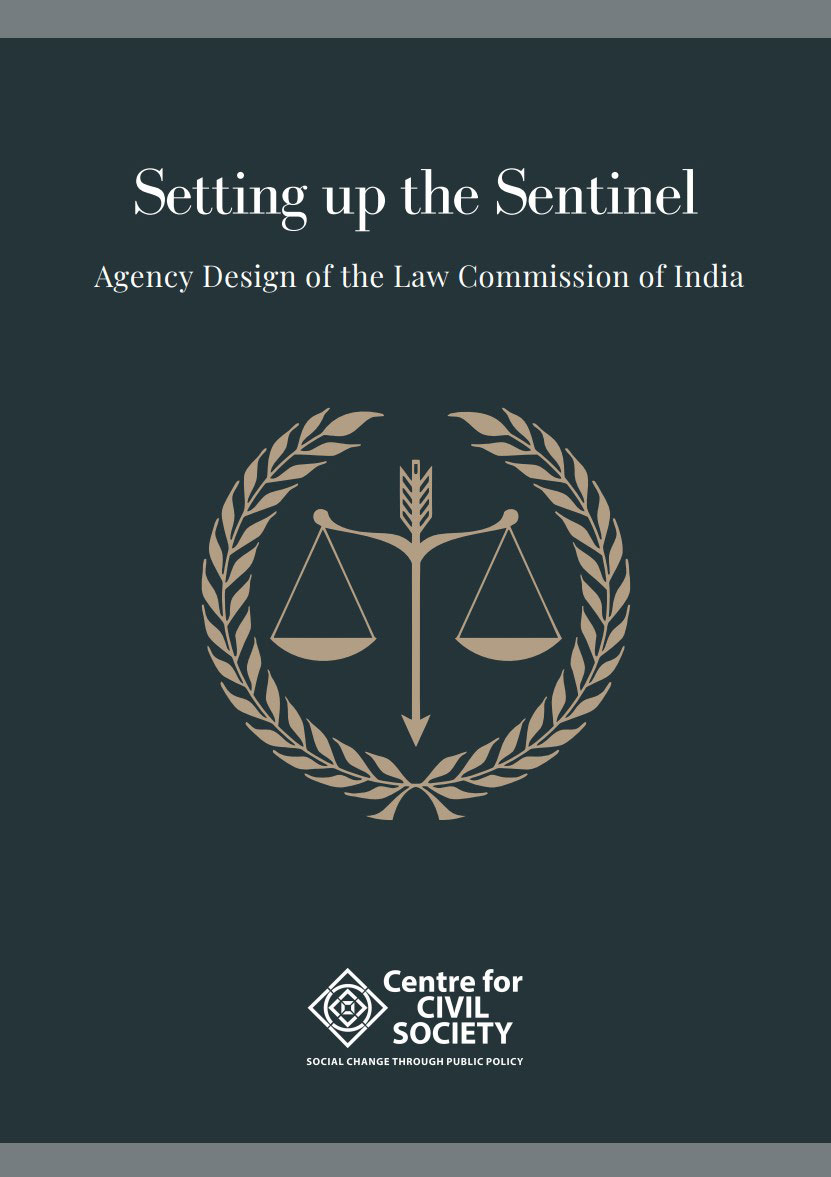The Law Commission is an advisory body to the Government of India. It is constituted every three years through an executive order to conduct legal research, suggest law reform, and recommend improvements in administration of justice. So far, the Law Commission has submitted 277 reports (Press Information Bureau 2020).
The Commission worked as a statutory body during the British regime under the Charter Act of 1833. This body was also constituted in 1853, 1861, and 1879 (Legislative Department, n.d.). The Government of India revived the practice of appointing Law Commissions in 1951, however, the Commission started as a non-statutory body and remains so. Unlike other commissions in India, the Law Commission has no fixed composition, eligibility criteria, and functions. The Terms of Reference are specified afresh each time it is constituted. Other national commissions like the National Human Rights Commission and the National Commission for Women have a parliamentary charter and are permanent bodies.
News reports document issues Law Commission (Shrivastava 2015). These include:
- limited capacity and dynamism;
- problems in the structure, composition and functional autonomy of the Commission;
- and inadequate funding.
However, there is no systematic study on the challenges with the Commission’s institutional design and the bearing this has on its functioning.
This policy brief attempts to address this gap by reviewing the Law Commission’s present structure, highlighting areas of improvement, and proposing a way forward to reengineer the institution. The brief follows a two-pronged approach. First, it records the experiences of various stakeholders and experts to identify key challenges in the working of the Commission. We study its structure, independence, research approach, and resource availability. Second, we present some best practices in agency design by drawing from the structure of independent bodies/commissions in India and other countries. Based on these learnings, we propose recommendations on how to redesign the Law Commission.
Our proposed reform of the Law Commission aims at making it a more robust body capable of reviewing laws and institutionalising quality checks.




